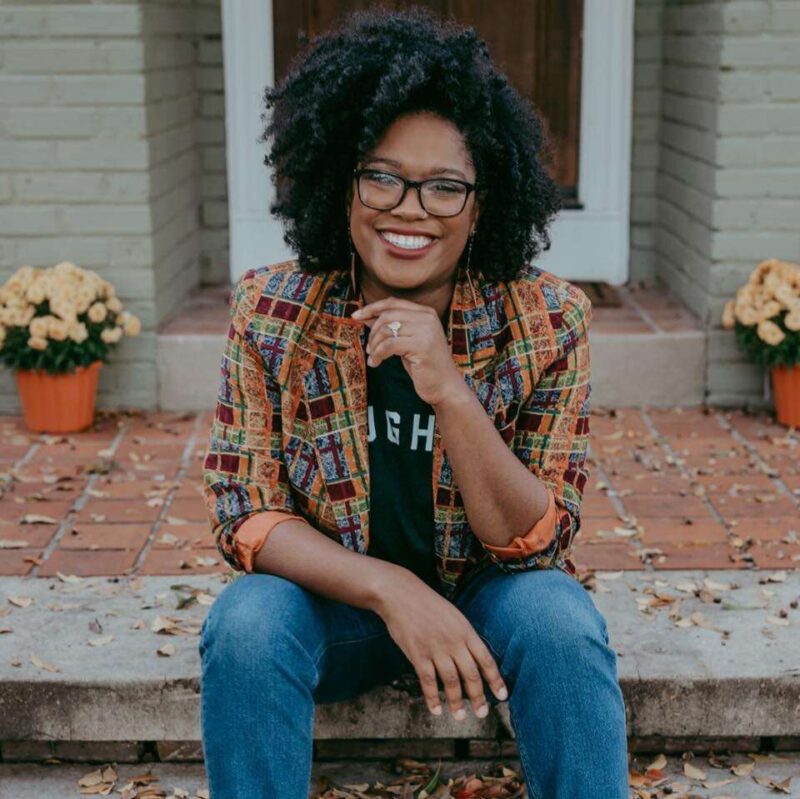Today, as I walked through Target doing some Christmas shopping with a friend, I passed by a wailing toddler. Her mom was trying to distract her with a white baby doll: “Look at her! She’s so pretty! Don’t you want this one?”
The little girl kept screaming and reaching for the black baby doll, and just as I passed, her mom said (very emphatically): “No. You are not getting that doll.”
I looked at my (white) friend because I felt embarrassed to have overheard it. She put her hand on my shoulder and asked, “Are you okay?”
I was. I am. But the event stuck in my head long enough for me to rattle off a quick tweet about it in the moment.
Then the floodgates opened.

Twitter Processing
For a more detailed piece on social media, read Stephanie Laferriere’s piece here.
I should not be looking to Twitter for any kind of safe space or validation. I have a therapist for that stuff. Twitter is a place for quips and hot takes — passing stories and observations. That’s why I shared the doll story there. It was an observation, not a traumatic event. Perhaps if I’d have been a child myself, I would’ve felt more wounded, but as an adult, I’ve had my fair share of awkward doll situations.
I received a barrage of feedback ranging from sadness to disappointment to outrage to…disbelief.
It’s disbelief that sticks with me. It’s not the disbelief of, “I can’t believe she said that in front of you” coming from people who obviously do believe it; rather, the disbelief of people literally saying a) I don’t believe you are telling this story without bias, or even, b) I literally just don’t believe this story happened.
People thought there must have been some hidden context for a mom trying to get her daughter to favor the exact same doll in a different shade, or, if there wasn’t context, I must have just completely made it up.
Tall Tales
I have always been a storyteller. Though my dreams of becoming a published author has been realized, I still hold myriad unfinished novels on my hard drive. Ever since I was a little girl, I have been dazzled by the power of a well-told story.
Being black and growing up in a predominantly white spaces, I’ve always had a bit of a different story. There are ways in which I experience the world that are completely different from some of my white brethren.
I know that in our social and political climate, that last sentence can offer a bit of a hangup. The only story we’re supposed to be about as believers is the story, right? Anything else is a distraction.
Little Story, Big Story
My unique experiences as a black woman are not an attack on the exclusivity of the gospel. Sharing those experiences as part of my story doesn’t negate the gospel, either.
Here’s what I pray for — my siblings in Christ to consider that their experiences of evangelical culture are not universal. That our unique stories and experiences can serve to amplify the fact that the saving power of Christ comes to infiltrate every tribe, tongue, and nation.
The fact that I’m a black woman isn’t central to my identity as a Christian. But it is a facet of the way the Lord has made me and does impact aspects of my life that I have to wrestle with quite often. This doesn’t negate the wrestling that you have to do, brother or sister: I’m just telling my story.
Listening Better
One of the most impactful things that happened during this Twitter kerfluffle was that a friend of mine jumped to my defense when others accused me of lying. He and I don’t see eye to eye on every issue in this charged climate; but he loves Jesus, I love Jesus, and we are not enemies.
He didn’t treat me like an enemy. He stuck his neck out and treated me as a friend.
Lady-at-Target-buying-a-doll is not a hill to die on. She’s a testament to my eavesdropping prowess more than proof of systemic racism. The responses to my sharing the story were way more damaging than the story itself; in a ninth commandment violation type of way.
The Body of Christ doesn’t get the excuse of saying, “it’s a politically charged climate and the battle lines have been drawn.” It doesn’t get to say, “she’s just another black woman being a victim and I’m done listening.” It doesn’t get to pick and choose the things that matter, the things that hurt, or the things others mull over and bring up for discussion.
I serve a burden-carrying Savior. He has called us to be burden-carrying siblings. I would love to share with you how you can do that for me. I would love to hear how I can do that for you. But first, we must become less afraid of the power in an unfamiliar story.
Prayer Requests:
- Pray that Christians would treat each other with love and give each other the benefit of the doubt (I Corinthians 13).
- Pray that Christians would listen well to each other to gain understanding of each other’s story and perspective.
- Pray that we would understand our stories in light of the Gospel and rejoice in all that God is doing.












